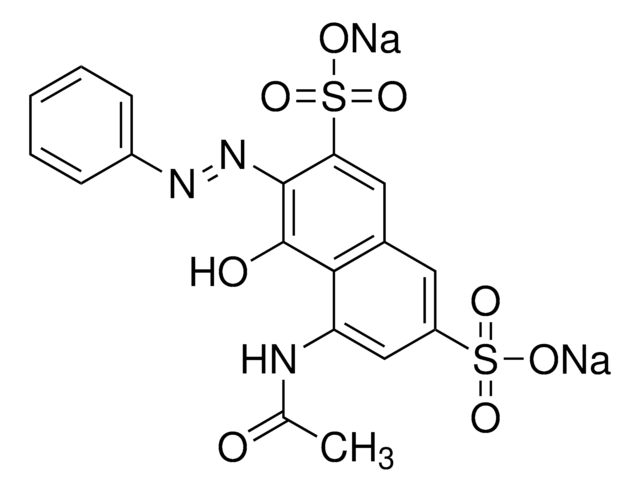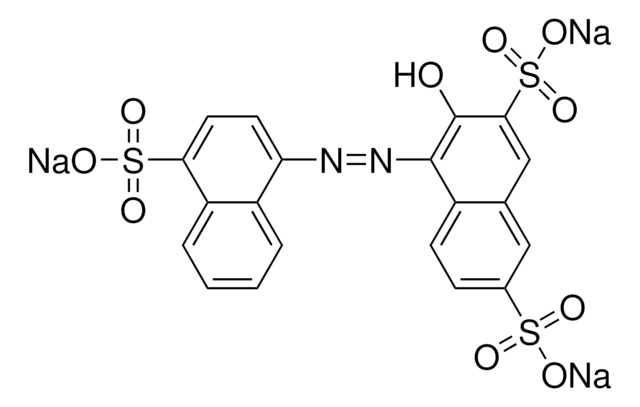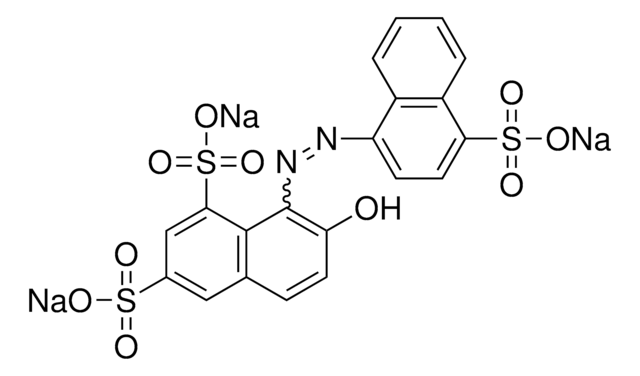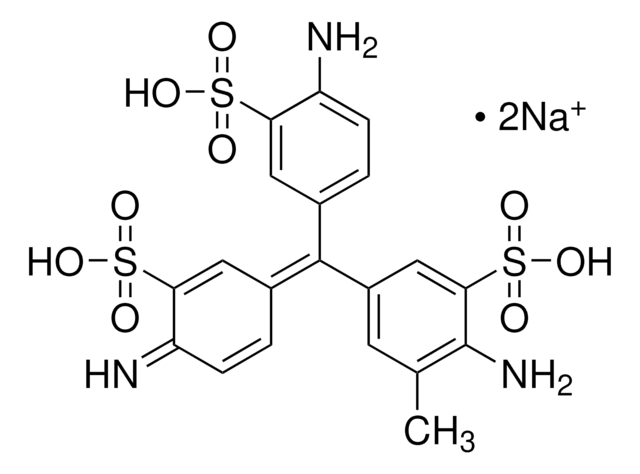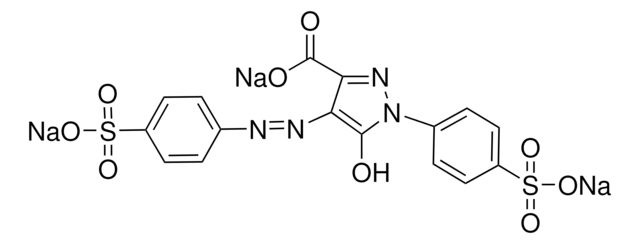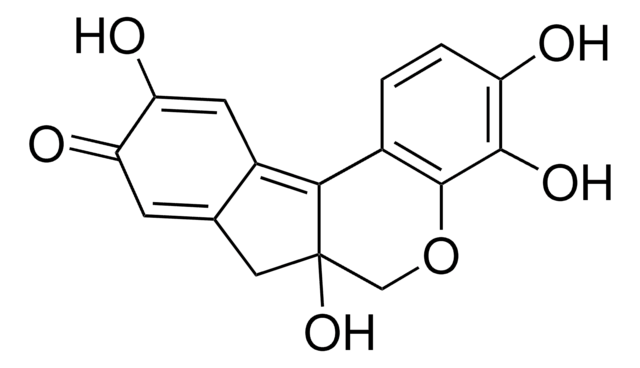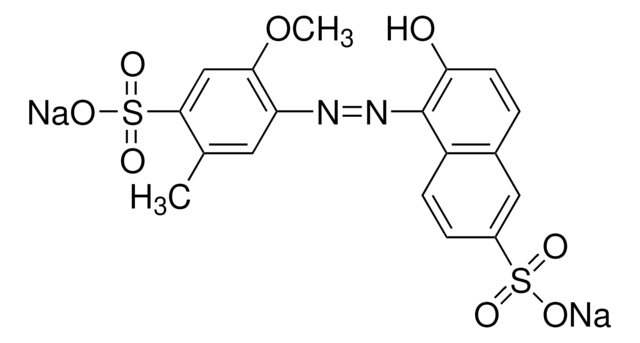11640
Azophloxine
for microscopy (Hist.)
Synonym(s):
Acid Red 1, Food Red 10
About This Item
Recommended Products
grade
for microscopy (Hist.)
form
powder
solubility
methanol: water (1:1): 0.5 g/10 mL, red
εmax
≥300 at 527-537 nm in water
application(s)
diagnostic assay manufacturing
hematology
histology
storage temp.
room temp
SMILES string
[Na+].[Na+].CC(=O)Nc1cc(cc2cc(c(\N=N\c3ccccc3)c(O)c12)S([O-])(=O)=O)S([O-])(=O)=O
InChI
1S/C18H15N3O8S2.2Na/c1-10(22)19-14-9-13(30(24,25)26)7-11-8-15(31(27,28)29)17(18(23)16(11)14)21-20-12-5-3-2-4-6-12;;/h2-9,23H,1H3,(H,19,22)(H,24,25,26)(H,27,28,29);;/q;2*+1/p-2/b21-20+;;
InChI key
WXLFIFHRGFOVCD-SERMZQFOSA-L
Looking for similar products? Visit Product Comparison Guide
General description
Application
Storage Class Code
11 - Combustible Solids
WGK
WGK 3
Flash Point(F)
Not applicable
Flash Point(C)
Not applicable
Personal Protective Equipment
Certificates of Analysis (COA)
Search for Certificates of Analysis (COA) by entering the products Lot/Batch Number. Lot and Batch Numbers can be found on a product’s label following the words ‘Lot’ or ‘Batch’.
Already Own This Product?
Find documentation for the products that you have recently purchased in the Document Library.
Customers Also Viewed
dye using nanosecond Z- scan technique
Acid Red 1 (Azophloxine)
Our team of scientists has experience in all areas of research including Life Science, Material Science, Chemical Synthesis, Chromatography, Analytical and many others.
Contact Technical Service